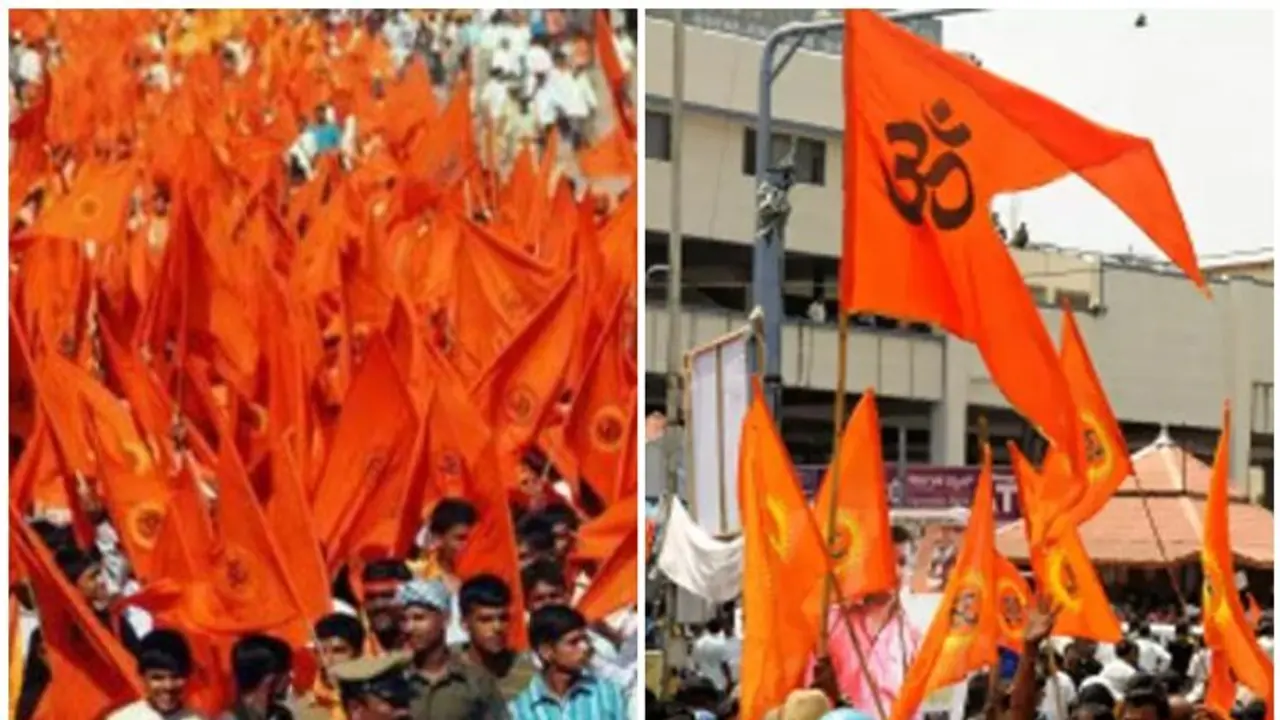VHP has sought an enactment of central law to free Hindu temples and religious institutions from government control.
The Vishwa Hindu Parishad (VHP) has appealed to the Centre to enact a law to free Hindu temples and religious institutions from government control in states, and also urged for the enactment of a “strong” central law to stop illegal religious conversion in the country.

In this connection, VHP central leadership is meeting seers and saints of Hindu Dharma to seek their guidance to evolve an alternate control structure, where the temples will be administered by the Hindu samaj. As part of this guidance seeking program, a team comprising Alok Kumar, the central working president along with joint general secretary Sthanumalayan, organising secretary south India PM Nagarajan and VHP workers from Tamil Nadu is meeting adnams, saints and sadhus to seek their blessings and guidance on the long-standing issue.
The saffron outfit in its central meeting held in July 2021 has passed a resolution to enact central law to free Hindu temples and religious institutions from government control. The board of trustees is of the view that the Hindu temples and religious institutions should be freed from government control.
VHP's International Working President Alok Kumar in a statement said temples in India have been the nuclei of social, religious, and cultural activities of the Hindu society and the secret behind the enduring nature of Hindu nation and immortality of Mrityunjay Bharat.
Hindu devotees visit temples to internalise the sanctity and serenity of the place and contribute their offerings so that the educational institutions, health services, festivals, religious and social projects/activities offered by the temples can run in an apt manner. Therefore, besides conducting the daily sacraments and related activities, the temples have remained vanguard in supporting the society in times of crisis and emergency, he added.
However, the VHP states that the irony is how state governments get their hands on many such rich temples of the country and spend the contributions of devotees illogically and arbitrarily. Even the money of temples is appealingly used to serve the non-Hindu causes. The Hindu religious institutions have been controlled by the governments since the British times. And as a result, Madras Hindu Religious Endowments Act, 1926 was enacted, Kumar further stated.
He said, as a consequence of this law, the management and administration of religious institutions was taken over by the British government. Our temples are still being acquired under the cover of this black law, whereas in the Chidambaram Nataraja Temple case, the Madras High Court clearly said that the government should free Hindu temples from government control.
Now the time has come for a comprehensive discussion regarding the management of Hindu temples and other religious institutions. Transparency and accountability should be ensured in the new framework of temple management. While deciding on the new frameworks, temple traditions, hereditary arrangements, the role of archaks (priests) and sections dependent on the temples’ income and participation of devotees will have to be taken into account, Kumar said.
The government cannot be the owner of the temples. The governments and the courts of law can have some minimal necessary role, when required. What and how much would be that role, must be considered by all stakeholders. I have seen a statement that the Tamil Nadu government has initiated a proposal of monetising temple properties. In our understanding and as per the recent High Court judgement, this is the domain of the trustees of a temple and not of the government. Given the diversity of the Hindu society, there can be no uniform framework of the management of all temples.
He also suggested that different approaches must be explored keeping in mind different traditions, customs, and ways of worship. It is now urgent to take necessary steps in this regard at a fast pace.
The Vishwa Hindu Parishad has appealed to the Centre to bring out a central law to handover Hindu temples and religious institutions to the Hindu society, so that saints and devotees could refurbish and up their religious and administrative systems and traditions oriented towards ensuring the spiritual-socio-cultural dynamism of ‘Mrityunjayi Bharat’.
The outfit also called upon the Hindu society to safeguard, enhance and be vigilant about the sanctity of temples, its traditions and environment.
VHP has also urged the Tamil Nadu government to drop plans to monetize the temple ornaments by melting the ornaments into gold bars, which were donated by millions of devotees to the temples over the years. The devotees have donated to the temple for a specific reason and belief, and VHP states that the government does not have any right to melt the ornaments into gold bars and deposit them in banks as it is a matter of faith and belief.
It has called upon the state government to enact an anti-conversion law to prevent conversions of Hindus by various other religious institutions under threats, pressure, allurements and false promises. The outfit said this law will enable Tamil Nadu to maintain its social fabric which in turn helps maintain law and order of the state and prevent anti-national activities within the state in the name of conversions.
